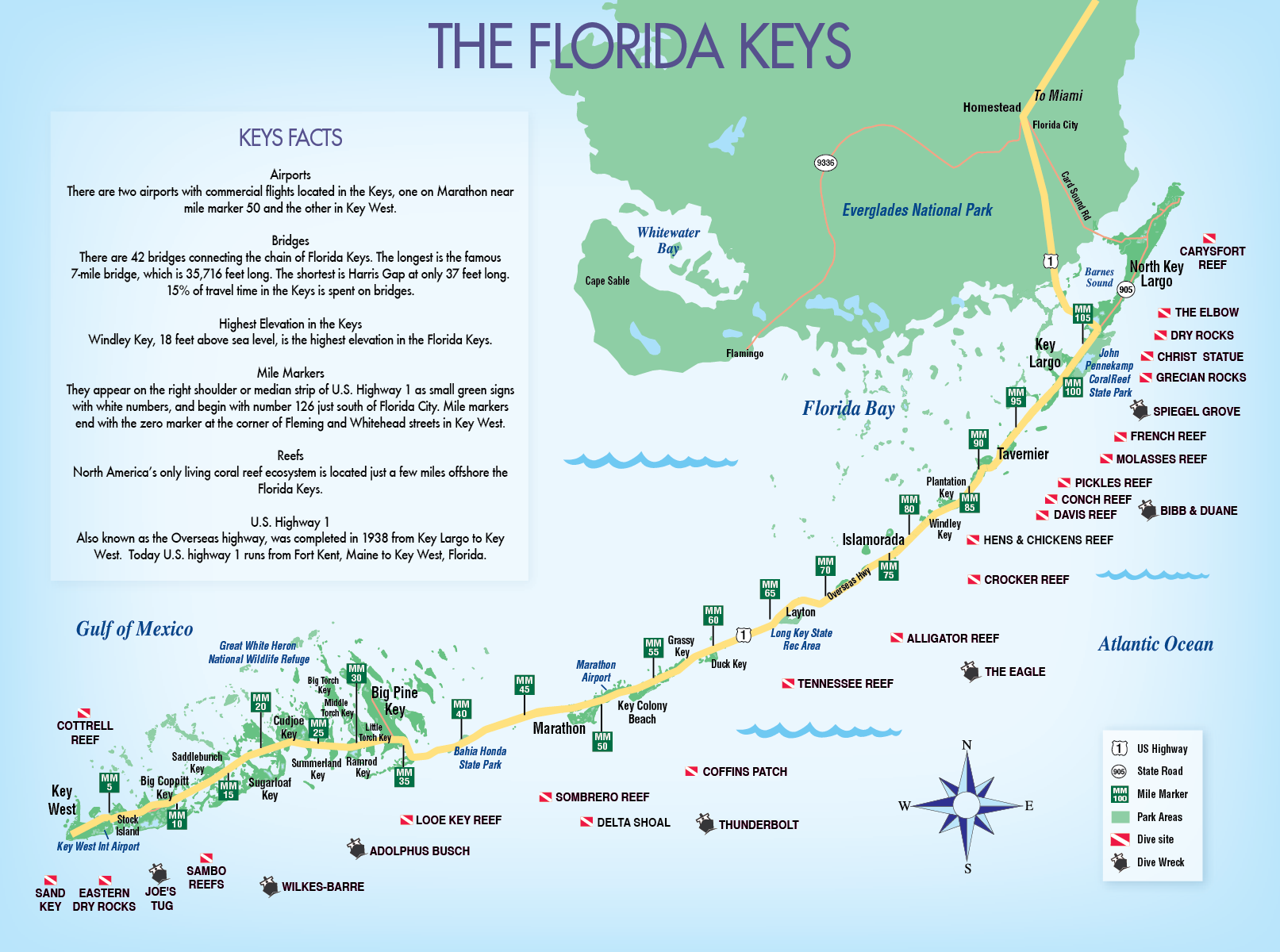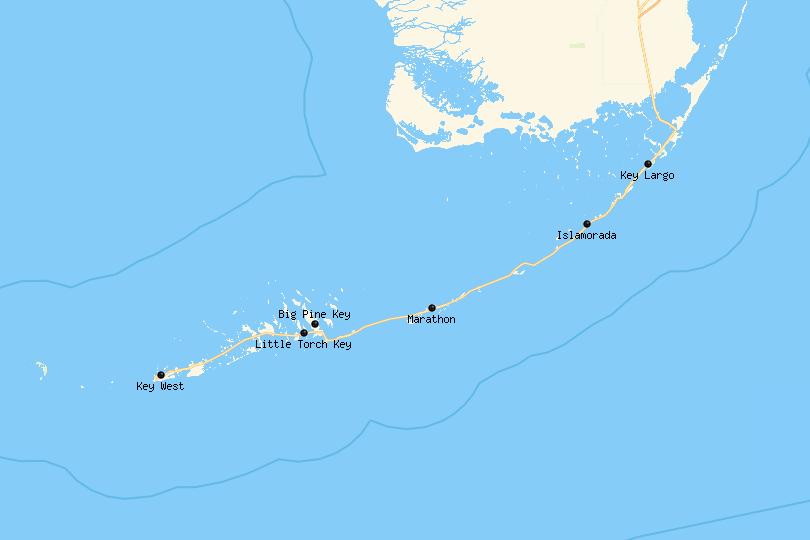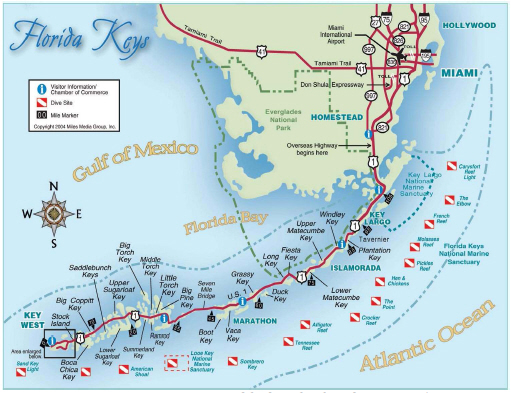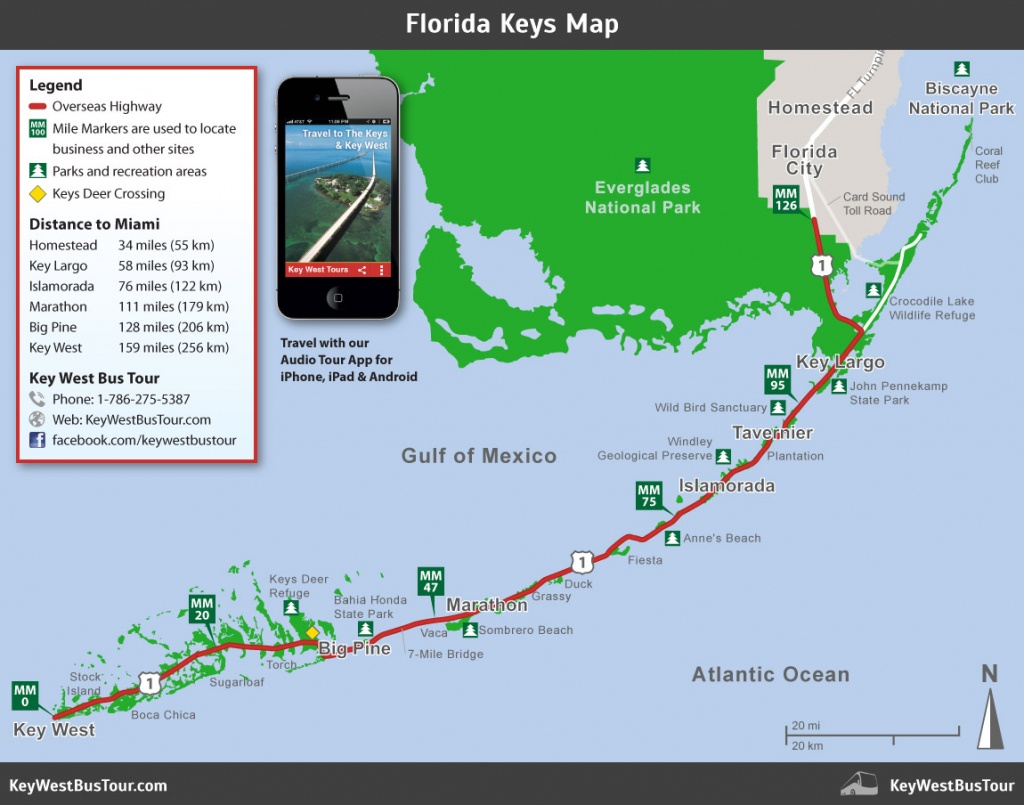Navigating the Archipelago: A Comprehensive Guide to the Florida Keys Map
Related Articles: Navigating the Archipelago: A Comprehensive Guide to the Florida Keys Map
Introduction
With enthusiasm, let’s navigate through the intriguing topic related to Navigating the Archipelago: A Comprehensive Guide to the Florida Keys Map. Let’s weave interesting information and offer fresh perspectives to the readers.
Table of Content
Navigating the Archipelago: A Comprehensive Guide to the Florida Keys Map

The Florida Keys, a string of islands stretching southwest from mainland Florida, are renowned for their turquoise waters, pristine beaches, and vibrant coral reefs. This unique archipelago, often referred to as "The Keys," offers a captivating blend of natural beauty and diverse experiences. To fully appreciate and explore this tropical paradise, understanding the layout and geography of the Keys is paramount. This comprehensive guide delves into the intricacies of the Florida Keys map, unveiling its importance and offering insights into its multifaceted benefits.
Understanding the Geography: A String of Jewels
The Florida Keys are a chain of approximately 1,700 islands, islets, and reefs, formed by the accumulation of coral and limestone over millennia. Only about 40 of these islands are inhabited, with the majority clustered in the Upper Keys, Middle Keys, and Lower Keys. The islands are connected by a series of bridges, creating a scenic and convenient route for travelers.
The Keys Map: A Key to Exploration
The Florida Keys map is an essential tool for anyone planning a trip to this tropical destination. It provides a visual representation of the island chain, revealing the location of key cities, points of interest, and natural features.
Key Features of the Florida Keys Map:
- Major Cities: The map highlights major cities within the Keys, including Key West, Marathon, Islamorada, and Key Largo. These cities serve as hubs for accommodation, dining, and entertainment.
- Points of Interest: The map pinpoints notable attractions such as the John Pennekamp Coral Reef State Park, the Dry Tortugas National Park, and the Bahia Honda State Park.
- Roads and Bridges: The map illustrates the intricate network of roads and bridges connecting the islands, enabling seamless navigation.
- Natural Features: The map showcases the region’s diverse natural features, including mangrove forests, seagrass beds, and the iconic Florida Keys Overseas Highway.
Benefits of Using a Florida Keys Map:
- Planning Your Itinerary: The map helps you plan your itinerary, identifying key destinations and optimizing your travel time.
- Navigating the Islands: The map assists in navigating the intricate network of roads and bridges, ensuring a smooth journey.
- Discovering Hidden Gems: The map unveils lesser-known attractions and natural wonders, enriching your exploration.
- Understanding the Landscape: The map provides a visual understanding of the Keys’ unique geography and diverse ecosystems.
Exploring the Keys: A Journey Through Time
The Florida Keys boast a rich history dating back to the indigenous Tequesta people. The arrival of European explorers and the development of the Overseas Highway transformed the Keys into a popular destination. Today, the Keys offer a captivating blend of historical sites, vibrant culture, and stunning natural beauty.
Key West: The Southernmost Point
Key West, the southernmost city in the United States, is a vibrant hub of culture, history, and entertainment. It is renowned for its laid-back atmosphere, colorful architecture, and lively nightlife.
The Overseas Highway: A Scenic Drive
The Florida Keys Overseas Highway, also known as the "Highway to Nowhere," is a scenic drive that connects the mainland to Key West. It traverses bridges over turquoise waters, offering breathtaking views of the Keys’ natural beauty.
Marine Life and Coral Reefs: An Underwater Wonderland
The Florida Keys are home to a diverse array of marine life, including vibrant coral reefs, colorful fish, and playful dolphins. The Keys offer a plethora of opportunities for snorkeling, diving, and exploring the underwater world.
FAQs: Addressing Common Queries
Q: How long does it take to drive the Overseas Highway?
A: The drive from mainland Florida to Key West, approximately 113 miles, takes around 3-4 hours.
Q: What are the best times to visit the Florida Keys?
A: The best time to visit the Keys is during the shoulder seasons, from April to May and September to October, when the weather is pleasant and crowds are smaller.
Q: Are there any specific safety precautions to be aware of?
A: Be mindful of the strong currents and potential for marine life encounters while swimming or snorkeling. Always check weather conditions and heed warnings from local authorities.
Tips for Exploring the Florida Keys:
- Plan your itinerary in advance: Utilize the Florida Keys map to identify points of interest and plan your route.
- Consider staying in different locations: Explore the diverse offerings of the Upper, Middle, and Lower Keys by staying in various locations.
- Embrace the laid-back atmosphere: Relax, enjoy the natural beauty, and immerse yourself in the Keys’ unique culture.
- Respect the environment: Practice responsible tourism by leaving no trace, minimizing your impact on the delicate ecosystems.
Conclusion: A Paradise Worth Exploring
The Florida Keys, with their diverse ecosystems, captivating history, and vibrant culture, offer a unique and unforgettable travel experience. The Florida Keys map serves as a valuable guide, enabling travelers to navigate the archipelago, discover hidden gems, and appreciate the full scope of this tropical paradise. Whether you seek adventure, relaxation, or cultural immersion, the Florida Keys promise a journey that will leave a lasting impression.








Closure
Thus, we hope this article has provided valuable insights into Navigating the Archipelago: A Comprehensive Guide to the Florida Keys Map. We thank you for taking the time to read this article. See you in our next article!